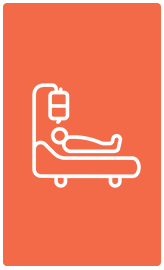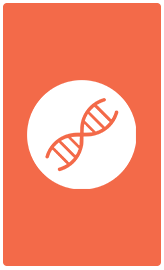What is PROBE?
PROBE (Patient Reported Outcomes, Burdens, and Experiences) is a new global data analytics tool powered by the voice of patients. It collects and quantifies patient perspectives on outcomes that patients deem relevant to their life and care. This allows us to better understand and improve the treatment and care of people living with hemophilia around the world.
PROBE FAQs
PROBE stands for Patient Reported Outcomes Burdens and Experiences. It is a long-term study aimed at measuring outcomes patients with hemophilia A and B deem relevant to their health status. To gather data, it uses a questionnaire that is completed by patients themselves.
The main goal of the PROBE study is to give hemophilia patient organizations patient-reported data on patients’ health status and quality of life that they can use to advocate for better care and treatment.
In the past, clinical research data and the personal stories of people with hemophilia were all that was available to try to convince health authorities to make improvements in care and treatment. More and more, patient-reported data are being requested by health authorities. The PROBE study is a way to provide this data and make a stronger evidence-based case for better care.
Additionally, the PROBE questionnaire allows individual patients to track their own health, is available for outcome assessment within a clinical development program, and for use in clinical care settings to assess patient outcomes.
Not at this time. The initial PROBE questionnaire is designed for people with hemophilia A and B, including carriers. The PROBE team hopes to develop similar questionnaires for VWD and other bleeding disorders in the future.
PROBE collects the following types of patient-reported information:
- type and severity of hemophilia
- type and history of treatment
- years of schooling and health impact on school
- employment status and health impact on work
- marital status
- number of children
- use of pain medication
- impact of acute and chronic pain on daily living
- ability to conduct activities of daily living
- need for mobility aids
- joint range of motion
- history of joint surgery
- number of bleeds in the last year
- other health problems
Additionally, the EuroQol 5-Dimensions 5-Level instrument (EQ-5D-5L) is administered as part of the PROBE survey. EQ-5D-5L is a standardized (non-hemophilia specific) measure of overall health status and the following quality-of-life indicators:
- mobility
- self-care
- activities of daily living
- pain/discomfort
- anxiety/depression.
The PROBE questionnaire is also administered to family members and friends of people with hemophilia. These people from the same country and background serve as a control group. This allows the study to answer questions such as, “Does hemophilia affect the number of years of schooling of people with hemophilia compared to the general population?”
PROBE is an investigator-led study. The investigators are:
- Mark W. Skinner, Institute for Policy Development Ltd., Washington, US
- Randall Curtis, Factor VIII Computing, Berkeley, California, US
- Neil Frick, National Hemophilia Foundation, New York City, US
- Alfonso Iorio, Department of Clinical Epidemiology and Biostatistics, McMaster University, Hamilton, Canada
- Michael Nichol, School of Policy and Planning Development, University of Southern California, Los Angeles, US
- Declan Noone, Irish Haemophilia Society, Dublin, Ireland
- Brian O'Mahony, Irish Haemophilia Society, Trinity College Dublin, Dublin, Ireland
- David Page, Canadian Hemophilia Society, Montreal, Canada
- Jeffrey Stonebraker, Poole College of Management, North Carolina State University, Raleigh, US.
Investigators
Collaborating Organizations
We wish to acknowledge the collaboration and support of the World Federation of Hemophilia, the European Haemophilia Consortium, the Coalition of the Americas and the U.S. National Hemophilia Foundation and the assistance provided with data analyses and study administration during the past and current phases of the PROBE study.





Explore Dashboard Sample
1. On the left side refine the data set to the variables of interest by selecting filters from the three main categories (Geography / Personal, Health Problems and Hemophilia Related). Each category contains filter options to narrow your circle of interest. Note: There is a vertical scroll bar on the right side of each variable. The "Grand Total" counter at the bottom right corner will adjust to reflect the sample size (n) for the variables selected.
2. The charts (bar, pie and other graphs) in the middle and right side present a graphical visualization for the variables of interest. Charts will automatically adjust in response to search criteria selected in the left side columns. Note: Charts may take a few moments to update.
3. All Charts are interactive. Individual elements of a chart may be selected (clicked on) to further customize and narrow your search into a specific area of interest.
Global Footprint

Languages:
Afrikaans
Albanian
Arabic (modern std.)
Armenian
Azerbaijani
Bangla
Bulgarian
Chinese (simplified)
Chinese (traditional)
Croatian
Czech
Danish
Dutch
English
Estonian
Farsi
Finnish
French
German
Greek
Hebrew
Hindi
Hungarian
Italian
Japanese
Korean
Kyrgyz
Latvian
Lithuanian
Malay
Nepali
Norwegian
Polish
Portuguese
Punjabi
Russian
Serbian
Sesotho
Slovenian
Spanish
Swedish
Tagalog
Thai
Turkish
Ukrainian
Urdu
Vietnamese
Xhosa
Zulu
Including patient-centered outcomes in your study
To show the value of novel treatments we must go beyond regularly collected clinical outcomes and show benefits to patients in their functional status and quality of life. PROBE was developed by patients, for patients, to include outcomes that impact patients’ lives.
The PROBE platform allows for collection of patient-relevant outcomes within clinical studies. The longitudinal aspect provides meaningful data across a study period and into real-world follow-up. Data is consistently collected and delivers the information needed for comparative effectiveness analysis.
Having access to information about the right outcomes facilitates decision-making throughout the lifecycle of a product – from regulatory authorization, through market assessment and coverage, to healthcare and treatment choices.
How scope improves our research
Government and private payers increasingly value data based on patient-centered outcomes research as part of the overall cost-benefit evaluation of high-cost care and treatment of diseases such as hemophilia. This emerging dimension of the healthcare environment presents a significant opportunity and urgent need to improve patient organizations’ ability to collect and interpret relevant outcomes data. More robust patient reported data will improve advocacy efforts to build comprehensive care programs, promote home treatment and implement preventative treatment regimens thus allowing advocacy arguments to move beyond emotion and anecdote to those grounded in real-world patient experiences and evidence.
Through PROBE we seek to validate the reliability, reproducibility and responsiveness of a low cost, easily administrable inventory for collecting patient self-reported outcomes, burdens and experiences in living with hemophilia. We anticipate that the metrics established through PROBE will allow for comparison of patient outcomes within a country over time and cross-sectionally between countries (regionally and globally).
PROBE is an independent investigator-led research project conducted as a multi-part study.
ClinicalTrials.gov Identifier

























